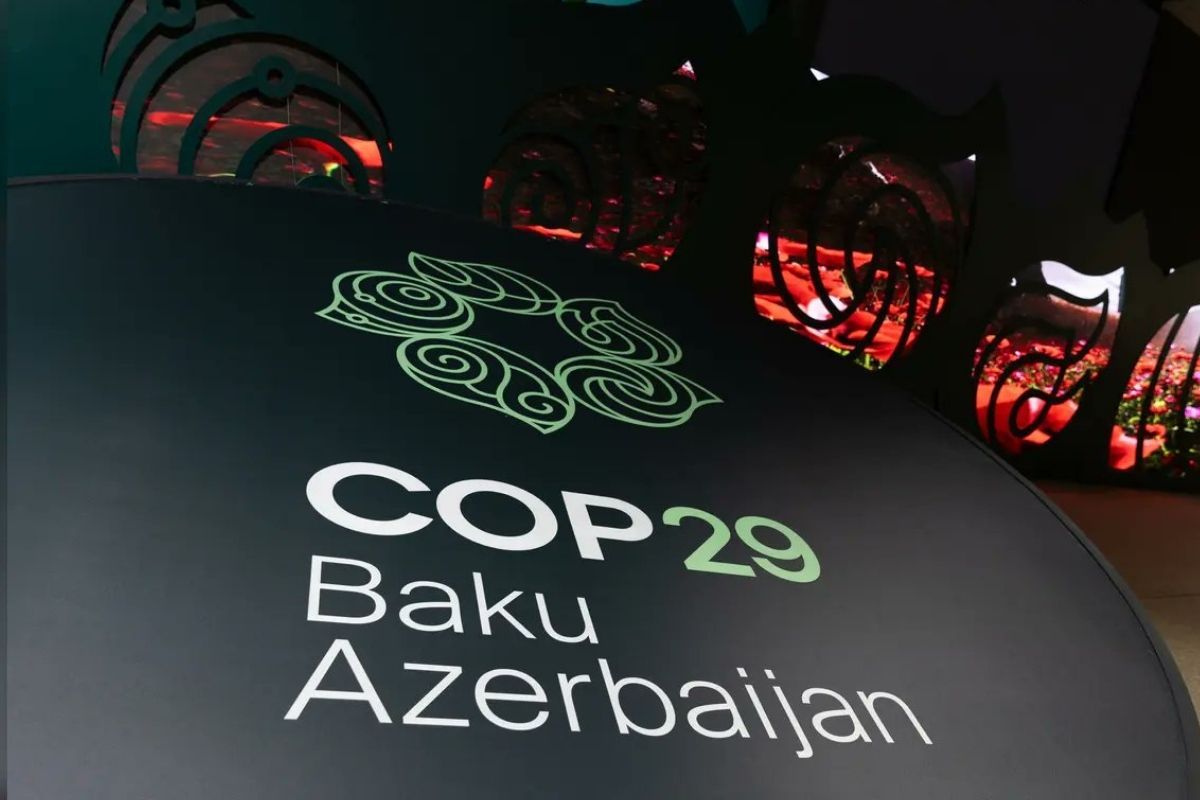The annual U.N. climate summit, COP29, began Monday in Azerbaijan’s capital, bringing together world leaders and climate negotiators to address climate finance. With global warming and extreme weather events becoming more frequent and severe, developing countries are pushing harder for increased financial support.
COP29 climate finance talks begin
The top agenda item at COP29 is a proposed increase in climate finance, aiming to secure up to $1 trillion annually for developing nations. This represents a significant jump from the long-standing $100 billion goal set in 2009, which wealthy nations have struggled to meet. The increased demand underscores the growing impact of climate change on vulnerable countries, exacerbated by recent natural disasters like floods in Africa, droughts in South America, and wildfires in the U.S.
Mukhtar Babayev, COP29 President and Azerbaijan’s Minister for Ecology and Natural Resources, emphasized the summit’s critical nature. “We are on a road to ruin,” Babayev declared in his opening address at Baku Stadium. “Azerbaijan can build the bridge, but you need to walk across it. We need to start running.”
The summit begins amidst a complex geopolitical landscape, including ongoing wars in Ukraine and Gaza, economic uncertainties, and the surprising re-election of former U.S. President Donald Trump. Trump’s victory raised concerns about a rollback of U.S. climate commitments, as he previously dismissed climate change as a “hoax” and threatened to withdraw the U.S. from the Paris Agreement.
China, representing the BASIC countries (Brazil, India, South Africa, and China), introduced a last-minute proposal to include trade issues in the summit’s agenda. The group expressed concerns over the European Union’s upcoming carbon border tariffs, effective in 2026. “If the EU wants to talk about climate finance with China, resolving trade and tariffs differences should be part of the conversation,” said Li Shuo, Director of China Climate Hub at the Asia Society Policy Institute.
Financing transition to clean energy
Climate finance will dominate the summit, with rich nations pressured to increase their contributions. According to a recent U.N. report, developing countries need an estimated $1 billion per day to adapt to climate change impacts, a stark contrast to the current flow of $75 million. U.N. Secretary-General António Guterres criticized the disparity, noting that while fossil fuel companies reap massive profits, adaptation funding is lacking.
Azerbaijan, the host nation, faces challenges in balancing economic growth with climate action. Historically reliant on oil, the country has seen oil and gas revenues decline from 50% of its economy in 2021 to 35% in 2023. Azerbaijan aims to reduce this further to 22% by 2028, aligning with its renewable energy transition plan. President Ilham Aliyev has promoted Azerbaijan’s gas exports as a “transition fuel” for Europe, but the country is increasing its investment in green energy, aiming for renewables to make up 35% of its power capacity by 2030.
Developing nations demand more climate cash
Developing countries have come to COP29 with strengthened demands for climate finance, especially for adaptation projects that help communities cope with extreme weather. Many argue that the current funding is insufficient and have called for wealthier nations to significantly increase their contributions.
“The impacts of climate change are not future problems; they’re happening now,” Babayev urged the delegates. “We need to raise our ambition and drive nations to commit more to reducing emissions and supporting vulnerable countries.”
With the U.S. potentially stepping back from global climate efforts under Trump’s leadership, there are concerns that other nations may lower their ambitions. “The U.S. is the second largest emitter and biggest economy. If they don’t set an ambitious target, why would others?” questioned Marc Vanheukelen, a former EU climate ambassador.
The talks focus on reaching a consensus for a new climate finance goal. The push for $1 trillion annually aims to bridge the gap between current funding levels and the needs of developing countries. Negotiators hope to see commitments for robust adaptation measures in national climate plans, as countries update their targets early next year.
COP28 President Sultan Al Jaber, who handed over the gavel to Babayev at the opening ceremony, reiterated the urgency of the summit’s mission. “People are suffering in the shadows. They need more than compassion and prayers. They need action.”
Keep Reading
2024 is on track to be the warmest year on record: WMO
Trump’s re-election a major setback for climate action: Experts warn
Hurricanes and climate change: A wake-up call ahead of COP29
Less than a week to go until COP 29, what’s on agenda this time?
Follow Ground Report on X, Instagram and Facebook for environmental and underreported stories from the margins. Give us feedback on our email id greport2018@gmail.com.
Don’t forget to Subscribe to our weekly newsletter, Join our community on WhatsApp, and Follow our YouTube Channel for video stories.






